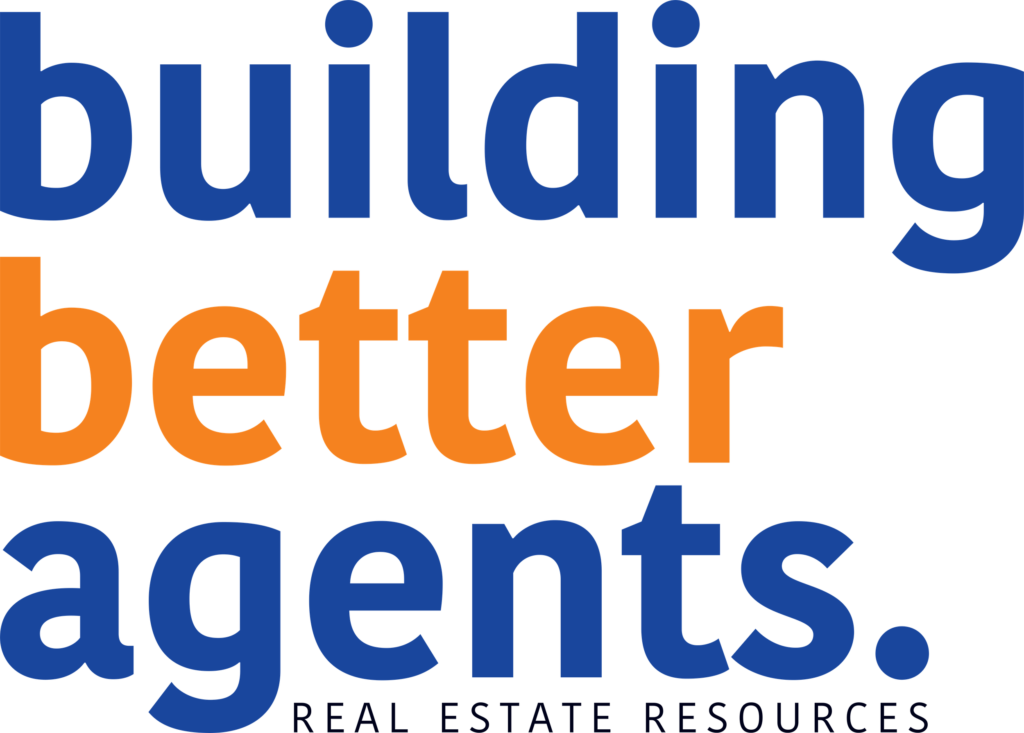- 44 MIN READ
Why do you get along with the people around you? Think of your friends, family, and colleagues. Why are you close? Why do they contact you? Why do you meet up?
Something you did, something you said, or something you responded to genuinely connected with them. You touched on an important value, and that laid the foundation for trust—the basis of any solid relationship.
I’m also sure of what you didn’t do. Which was rambling off a list of traits about yourself, or why you’re such a great person. Yet some people do that. Ever notice how you tend to avoid them?
Brands are exactly the same. Take milk for example.
In the ‘90s, the dairy industry had a sales problem. To market their main product, they focused on why their product was good for people. You know, calcium for bones, helps us grow, being the big boss of the dairy food group, etc. But nothing happened. Sales stayed stagnant for years.
Then they launched the famous “Got Milk” campaign and sales exploded. Why? Because suddenly, milk had a brand identity.
CHAPTER ONE
Introduction to Branding for Real Estate Agents
The Basics of Brand Awareness
Why do you get along with the people around you? Think of your friends, family, and colleagues. Why are you close? Why do they contact you? Why do you meet up?
Something you did, something you said, or something you responded to genuinely connected with them. You touched on an important value, and that laid the foundation for trust—the basis of any solid relationship.
I’m also sure of what you didn’t do. Which was rambling off a list of traits about yourself, or why you’re such a great person. Yet some people do that. Ever notice how you tend to avoid them?
Brands are exactly the same. Take milk for example.
In the ‘90s, the dairy industry had a sales problem. To market their main product, they focused on why their product was good for people. You know, calcium for bones, helps us grow, being the big boss of the dairy food group, etc. But nothing happened. Sales stayed stagnant for years.
Then they launched the famous “Got Milk” campaign and sales exploded. Why? Because suddenly, milk had a brand identity.
The Basics of Brand Awareness
Why do you get along with the people around you? Think of your friends, family, and colleagues. Why are you close? Why do they contact you? Why do you meet up?
Something you did, something you said, or something you responded to genuinely connected with them. You touched on an important value, and that laid the foundation for trust—the basis of any solid relationship.
I’m also sure of what you didn’t do. Which was rambling off a list of traits about yourself, or why you’re such a great person. Yet some people do that. Ever notice how you tend to avoid them?
Brands are exactly the same. Take milk for example.
In the ‘90s, the dairy industry had a sales problem. To market their main product, they focused on why their product was good for people. You know, calcium for bones, helps us grow, being the big boss of the dairy food group, etc. But nothing happened. Sales stayed stagnant for years.
Then they launched the famous “Got Milk” campaign and sales exploded. Why? Because suddenly, milk had a brand identity.
CHAPTER TWO
Branding Terms to Know
The Basics of Brand Awareness
Why do you get along with the people around you? Think of your friends, family, and colleagues. Why are you close? Why do they contact you? Why do you meet up?
Something you did, something you said, or something you responded to genuinely connected with them. You touched on an important value, and that laid the foundation for trust—the basis of any solid relationship.
I’m also sure of what you didn’t do. Which was rambling off a list of traits about yourself, or why you’re such a great person. Yet some people do that. Ever notice how you tend to avoid them?
Brands are exactly the same. Take milk for example.
In the ‘90s, the dairy industry had a sales problem. To market their main product, they focused on why their product was good for people. You know, calcium for bones, helps us grow, being the big boss of the dairy food group, etc. But nothing happened. Sales stayed stagnant for years.
Then they launched the famous “Got Milk” campaign and sales exploded. Why? Because suddenly, milk had a brand identity.
The Basics of Brand Awareness
Why do you get along with the people around you? Think of your friends, family, and colleagues. Why are you close? Why do they contact you? Why do you meet up?
Something you did, something you said, or something you responded to genuinely connected with them. You touched on an important value, and that laid the foundation for trust—the basis of any solid relationship.
I’m also sure of what you didn’t do. Which was rambling off a list of traits about yourself, or why you’re such a great person. Yet some people do that. Ever notice how you tend to avoid them?
Brands are exactly the same. Take milk for example.
In the ‘90s, the dairy industry had a sales problem. To market their main product, they focused on why their product was good for people. You know, calcium for bones, helps us grow, being the big boss of the dairy food group, etc. But nothing happened. Sales stayed stagnant for years.
Then they launched the famous “Got Milk” campaign and sales exploded. Why? Because suddenly, milk had a brand identity.
CHAPTER THREE
How to Get Started with Branding
The Basics of Brand Awareness
Why do you get along with the people around you? Think of your friends, family, and colleagues. Why are you close? Why do they contact you? Why do you meet up?
Something you did, something you said, or something you responded to genuinely connected with them. You touched on an important value, and that laid the foundation for trust—the basis of any solid relationship.
I’m also sure of what you didn’t do. Which was rambling off a list of traits about yourself, or why you’re such a great person. Yet some people do that. Ever notice how you tend to avoid them?
Brands are exactly the same. Take milk for example.
In the ‘90s, the dairy industry had a sales problem. To market their main product, they focused on why their product was good for people. You know, calcium for bones, helps us grow, being the big boss of the dairy food group, etc. But nothing happened. Sales stayed stagnant for years.
Then they launched the famous “Got Milk” campaign and sales exploded. Why? Because suddenly, milk had a brand identity.
The Basics of Brand Awareness
Why do you get along with the people around you? Think of your friends, family, and colleagues. Why are you close? Why do they contact you? Why do you meet up?
Something you did, something you said, or something you responded to genuinely connected with them. You touched on an important value, and that laid the foundation for trust—the basis of any solid relationship.
I’m also sure of what you didn’t do. Which was rambling off a list of traits about yourself, or why you’re such a great person. Yet some people do that. Ever notice how you tend to avoid them?
Brands are exactly the same. Take milk for example.
In the ‘90s, the dairy industry had a sales problem. To market their main product, they focused on why their product was good for people. You know, calcium for bones, helps us grow, being the big boss of the dairy food group, etc. But nothing happened. Sales stayed stagnant for years.
Then they launched the famous “Got Milk” campaign and sales exploded. Why? Because suddenly, milk had a brand identity.
CHAPTER FOUR
How to Market Your Brand to Your Target Audience
The Basics of Brand Awareness
Why do you get along with the people around you? Think of your friends, family, and colleagues. Why are you close? Why do they contact you? Why do you meet up?
Something you did, something you said, or something you responded to genuinely connected with them. You touched on an important value, and that laid the foundation for trust—the basis of any solid relationship.
I’m also sure of what you didn’t do. Which was rambling off a list of traits about yourself, or why you’re such a great person. Yet some people do that. Ever notice how you tend to avoid them?
Brands are exactly the same. Take milk for example.
In the ‘90s, the dairy industry had a sales problem. To market their main product, they focused on why their product was good for people. You know, calcium for bones, helps us grow, being the big boss of the dairy food group, etc. But nothing happened. Sales stayed stagnant for years.
Then they launched the famous “Got Milk” campaign and sales exploded. Why? Because suddenly, milk had a brand identity.
The Basics of Brand Awareness
Why do you get along with the people around you? Think of your friends, family, and colleagues. Why are you close? Why do they contact you? Why do you meet up?
Something you did, something you said, or something you responded to genuinely connected with them. You touched on an important value, and that laid the foundation for trust—the basis of any solid relationship.
I’m also sure of what you didn’t do. Which was rambling off a list of traits about yourself, or why you’re such a great person. Yet some people do that. Ever notice how you tend to avoid them?
Brands are exactly the same. Take milk for example.
In the ‘90s, the dairy industry had a sales problem. To market their main product, they focused on why their product was good for people. You know, calcium for bones, helps us grow, being the big boss of the dairy food group, etc. But nothing happened. Sales stayed stagnant for years.
Then they launched the famous “Got Milk” campaign and sales exploded. Why? Because suddenly, milk had a brand identity.
CHAPTER FIVE
Benefits of Branding: Why You Need a Brand and not a Business
The Basics of Brand Awareness
Why do you get along with the people around you? Think of your friends, family, and colleagues. Why are you close? Why do they contact you? Why do you meet up?
Something you did, something you said, or something you responded to genuinely connected with them. You touched on an important value, and that laid the foundation for trust—the basis of any solid relationship.
I’m also sure of what you didn’t do. Which was rambling off a list of traits about yourself, or why you’re such a great person. Yet some people do that. Ever notice how you tend to avoid them?
Brands are exactly the same. Take milk for example.
In the ‘90s, the dairy industry had a sales problem. To market their main product, they focused on why their product was good for people. You know, calcium for bones, helps us grow, being the big boss of the dairy food group, etc. But nothing happened. Sales stayed stagnant for years.
Then they launched the famous “Got Milk” campaign and sales exploded. Why? Because suddenly, milk had a brand identity.
The Basics of Brand Awareness
Why do you get along with the people around you? Think of your friends, family, and colleagues. Why are you close? Why do they contact you? Why do you meet up?
Something you did, something you said, or something you responded to genuinely connected with them. You touched on an important value, and that laid the foundation for trust—the basis of any solid relationship.
I’m also sure of what you didn’t do. Which was rambling off a list of traits about yourself, or why you’re such a great person. Yet some people do that. Ever notice how you tend to avoid them?
Brands are exactly the same. Take milk for example.
In the ‘90s, the dairy industry had a sales problem. To market their main product, they focused on why their product was good for people. You know, calcium for bones, helps us grow, being the big boss of the dairy food group, etc. But nothing happened. Sales stayed stagnant for years.
Then they launched the famous “Got Milk” campaign and sales exploded. Why? Because suddenly, milk had a brand identity.
OVERVIEW
Branding: In Summary
The Basics of Brand Awareness
Why do you get along with the people around you? Think of your friends, family, and colleagues. Why are you close? Why do they contact you? Why do you meet up?
Something you did, something you said, or something you responded to genuinely connected with them. You touched on an important value, and that laid the foundation for trust—the basis of any solid relationship.
I’m also sure of what you didn’t do. Which was rambling off a list of traits about yourself, or why you’re such a great person. Yet some people do that. Ever notice how you tend to avoid them?
Brands are exactly the same. Take milk for example.
In the ‘90s, the dairy industry had a sales problem. To market their main product, they focused on why their product was good for people. You know, calcium for bones, helps us grow, being the big boss of the dairy food group, etc. But nothing happened. Sales stayed stagnant for years.
Then they launched the famous “Got Milk” campaign and sales exploded. Why? Because suddenly, milk had a brand identity.
The Basics of Brand Awareness
Why do you get along with the people around you? Think of your friends, family, and colleagues. Why are you close? Why do they contact you? Why do you meet up?
Something you did, something you said, or something you responded to genuinely connected with them. You touched on an important value, and that laid the foundation for trust—the basis of any solid relationship.
I’m also sure of what you didn’t do. Which was rambling off a list of traits about yourself, or why you’re such a great person. Yet some people do that. Ever notice how you tend to avoid them?
Brands are exactly the same. Take milk for example.
In the ‘90s, the dairy industry had a sales problem. To market their main product, they focused on why their product was good for people. You know, calcium for bones, helps us grow, being the big boss of the dairy food group, etc. But nothing happened. Sales stayed stagnant for years.
Then they launched the famous “Got Milk” campaign and sales exploded. Why? Because suddenly, milk had a brand identity.
Learn More About Branding


Brand Building with Canva
Lorem ipsum dolor sit amet, consectetur adipiscing elit. Ut elit tellus, luctus nec ullamcorper mattis, pulvinar dapibus leo. Lorem ipsum dolor sit amet, consectetur adipiscing elit. Ut elit tellus, luctus nec ullamcorper mattis, pulvinar dapibus leo.Lorem ipsum dolor sit amet, consectetur adipiscing elit. Ut elit tellus, luctus nec ullamcorper mattis, pulvinar dapibus leo.


Brand Building with Canva
Learn how to use Canva a drag-and-drop graphic design platform, used to create branded real estate social media graphics, presentations, posters, documents and other visual content.


Let's Work Together
I’ve helped hundreds of agents build successful businesses, generate more leads, and expand their teams into multiple states.









